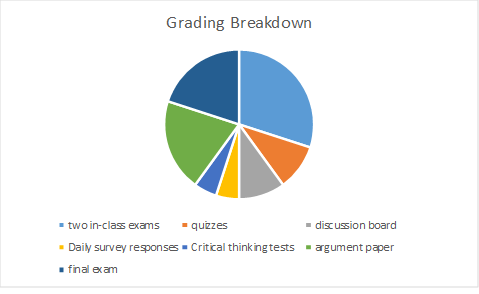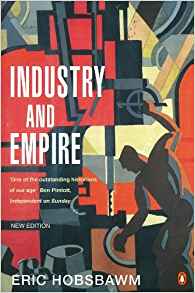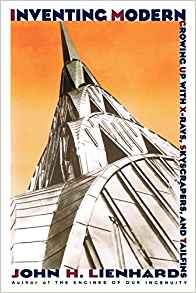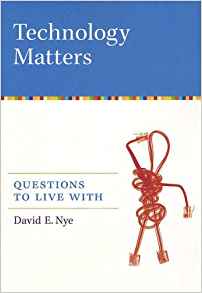
Instructor: Dr. Pamela E. Mack,
Department of History
Contact information: Email: pammack@clemson.edu (I
try to respond to emails within 24 hours on class days)
preferred form of address: Prof. Mack or Dr. Mack, pronouns:
she/her
History Department phone number for phone messages:
864-656-3153
Course Goals:
| CT2 Learning Outcomes | Learning Outcomes for this Class |
| These are essential critical thinking skills... | ...and this is how we “do” them in
HIST 1220 |
|
|

Your participation in this system will be graded on a scale
of 10, but in every case you must write at least 250 words long
(we will not grade shorter ones). To get an 9 or 10 you
need to say something worthwhile about the question. Your
response should be organized and clearly written and should
bring new information to the discussion. Some of that new
information can be personal experience, but some must be from
the reading or film or lecture assigned. You may use
outside sources as well if you wish, but they must be
cited. There will be 11 discussions and I will drop the
lowest grade. You will get only one grade per topic, but
if you write more than one post on a topic all your posts will
be taken into account in deciding your grade for the
topic. Posts after the deadline for that topic will
receive no credit.
It is cheating to cut and paste or otherwise copy portions
of a argument paper, exam, or discussion board posting from a
book, web site, or from the online class notes, unless you quote
and give the source. Changing a few words is not sufficient to
make the material your own. It is poor writing for more than
about 20% of your paper to consist of quotes. In most cases when you
use specific material from any source you should paraphrase:
cite the source and put the
ideas into you own words (generally no more than 5
consecutive words should match the source but if the words are
mostly the same it could still be plagiarism even if there
aren't 5 consecutive words).
General
Education: This course meets the Social
Science and STS general education requirements, and your
argument paper is the artifact that demonstrates that. The
competencies are:
| Eric Hobsbawm, Industry and Empire: The
Birth of the Industrial Revolution (make sure to get the 1999 edition, not the 1968 edition) |
John H. Lienhard, Inventing Modern: Growing Up with X-rays, Skyscrapers, and Tailfins | David E. Nye, Technology
Matters : Questions to Live With available at: http://libcat.clemson.edu/record=b3592970 |
 |
 |
 |
II. Class Schedule for Hist 1220:
| date |
reading |
in
class |
work
due by 11 am |
| Aug. 21 |
syllabus |
Course
Philosophy syllabus: http://pammack.sites.clemson.edu/syl1220ct.html |
|
| Aug. 23 |
Hobsbawm preface |
Definitions
and Critical Thinking |
|
| Aug. 26 |
Hobsbawm intro-1 | Technology
before the Industrial Revolution |
db1 |
| Aug. 28 |
Hobsbawm 2 | Origins
(quiz 1 posted after class) |
|
| Aug. 30 |
Hobsbawm 3 | The Industrial Revolution | quiz 1 (intro-2) due by
11 am |
| Sept. 2 |
Hobsbawm 4 | Human Results | db2 |
| Sept. 4 |
Hobsbawm 5 | Agriculture | |
| Sept. 6 |
Hobsbawm 6 | Second Phase of Industrialization | quiz 2 (3-5)
|
| Sept. 9 |
Hobsbawm 8 | Standard
of Living |
db3 |
| Sept. 11 |
Hobsbawm 10 & conclusion | The Land | |
| Sept. 13 |
Hobsbawm 7 optional | The Spread of the Industrial Revolution | quiz 3 (6, 8) |
| Sept. 16 |
review | ||
| Sept. 18 |
In-class Test | ||
| Sept. 20 |
Climate Strike
Day--special presentation in class or if you choose to
strike you must write about an event you attended (eg. https://www.facebook.com/events/513000296168801/) |
||
| Sept. 23 |
Lienhard preface
& chs.1- 2 |
Manifest Destiny and Short Lived Technologies | db4 |
| Sept. 25 |
Lienhard 3 |
Forces
Totally New |
|
| Sept. 27 |
Lienhard 4 | Genius | quiz 4 (1-3) |
| Sept.
30 |
Lienhard 5 | Core
and Fringe |
db5 |
| Oct. 2 |
Lienhard 6 |
High
Rises
|
|
| Oct. 4 |
Lienhard 7 |
The
City |
quiz 5 (4-6) |
| Oct. 7 |
Lienhard 8 |
Automobile |
db6 |
| Oct. 9 |
Lienhard 9 |
On
the Road |
|
| Oct. 11 |
Lienhard 10-11 | Aviation | quiz 6 (7-9) |
| Oct. 14 |
|
Fall Break | db7 |
| Oct. 16 |
Lienhard 12 | A
Boy's Life, Radio |
|
| Oct. 18 |
Lienhard 13 | Invention | quiz 7 (10-12) |
| Oct. 21 |
Lienhard 14 | War | db8 |
| Oct. 23 |
Lienhard 15 | Fifties | |
| Oct. 25 |
Lienhard 16 | After Modern | quiz 8 (13-15) |
| Oct. 28 |
review | ||
| Oct. 30 |
In-Class Test |
|
|
| Nov. 1 |
Nye ch. 1 | Defining Technology | |
| Nov. 4 |
Nye ch. 2 |
The argument against determinism | db9 |
| Nov. 6 |
Nye ch. 3 | Can
Technology be predicted? |
|
| Nov. 8 |
Nye 4 | Historical theory | quiz 9
(1-4) Argument paper proposal due |
| Nov. 11 |
Nye ch. 5 | Freedom | db10 |
| Nov. 13 |
Nye ch. 6 | Technology and the environment | |
| Nov. 15 |
Nye ch. 7 | Work | quiz 10 (4-6) |
| Nov. 18 |
Nye ch. 8 | Who selects technologies? | Argument paper due |
| Nov. 20 |
Nye ch. 9 | Risk | |
| Nov. 22 |
Nye ch. 10 | Knowledge | |
| Nov. 25 |
Nye ch. 11 | Choosing
our future |
quiz 11 (7-10) |
| Nov. 27-29 |
Thanksgiving | ||
| Dec. 2 |
Online reading | The Development of the Computer | db 11 |
| Dec. 4 |
Technology
and the future |
||
| Dec. 6 |
review | ||
| Dec. 10 |
Final Exam 8
am Hardin 100 |
III. University Policies for
HIST 1220
Student Accessibility Services
Clemson University values the diversity of our student
body as a strength and a critical component of our dynamic
community. Students with disabilities or temporary
injuries/conditions may require accommodations due to barriers
in the structure of facilities, course design, technology used
for curricular purposes, or other campus resources. Students who
experience a barrier to full access to this class should let the
professor know, and make an appointment to meet with a staff
member in Student Accessibility Services as soon as possible.
You can make an appointment by calling 864-656-6848, by emailing
studentaccess@lists.clemson.edu, or by visiting Suite 239 in the
Academic Success Center building. Appointments are strongly
encouraged – drop-ins will be seen if at all possible, but there
could be a significant wait due to scheduled appointments.
Students who receive Academic Access Letters are strongly
encouraged to request, obtain and present these to their
professors as early in the semester as possible so that
accommodations can be made in a timely manner. It is the
student’s responsibility to follow this process each semester.
You can access further information at the Student
Accessibility Services Website and the Office
of Access and Equity Website.
Email Policy / Response Time
Clemson does not provide me with a phone; email is my
preferred method of contact for university business. You can
expect a response to your email inquiries within 36 hours,
excluding weekends and university holidays.
Copyright
All materials found in this course are strictly for
the use of students enrolled in this course and for purposes
associated with this course; they may not be retained or further
disseminated. Clemson students, faculty, and staff are expected
to comply fully with institutional copyright policy as well as
all other copyright laws.
Privacy Policy
Online Conduct
Appropriate online academic conduct means maintaining
a safe learning environment based on mutual respect and
civility. All participants in Clemson courses are expected to
behave professionally by adhering to these standards of conduct:
Online communication that fails to meet these
standards of conduct will be removed from the course. Repeated
misconduct may result in being blocked from online discussions,
receiving a grade penalty, or being dismissed from the course.
Such misconduct in the online environment may also be reported
to officials for appropriate action in accordance with
University policy. If you ever encounter inappropriate content
in our course, please contact me with your concerns.
Academic Integrity
As members of the Clemson University community, we
have inherited Thomas Green Clemson's vision of this institution
as a "high seminary of learning." Fundamental to this vision is
a mutual commitment to truthfulness, honor, and responsibility,
without which we cannot earn the trust and respect of others.
Furthermore, we recognize that academic dishonesty detracts from
the value of a Clemson degree. Therefore, we shall not tolerate
lying, cheating, or stealing in any form.
A simple definition of plagiarism is when someone
presents another person's words, visuals, or ideas as his or her
own. See the first section of the syllabus for specifics on how
this is defined in this course. The instructor will deal with
plagiarism on a case-by-case basis. I will use, at my
discretion, the Plagiarism Resolution Form. All infractions of
academic dishonesty will be reported to Undergraduate Studies
for resolution through that office.
See the Undergraduate
Academic Integrity Policy website for additional
information about academic integrity at Clemson.
Academic Grievances
Students are advised to visit the Ombuds'
Office prior to filing a grievance. After discussion with
the undergraduate academic ombudsman, students should contact
Undergraduate Studies (656-3022) for assistance filing official
paperwork.
Non-Discrimination
Clemson University is committed to providing a higher
education environment that is free from sexual discrimination.
Therefore, if you believe you or someone else that is part of
the Clemson University community has been discriminated against
based on sex, or if you have questions about Title IX, please
contact the Title IX Coordinator, Alesia Smith, who also serves
as the Executive Director of Equity Compliance, at 110
Holtzendorff Hall, 864-656-3181 (voice) or 864-656-0899 (TDD).
The Title IX Coordinator is the person designated by Clemson
University to oversee its Title IX compliance efforts. Please
consult the
University's Title IX policy for full details.
Student Support Services